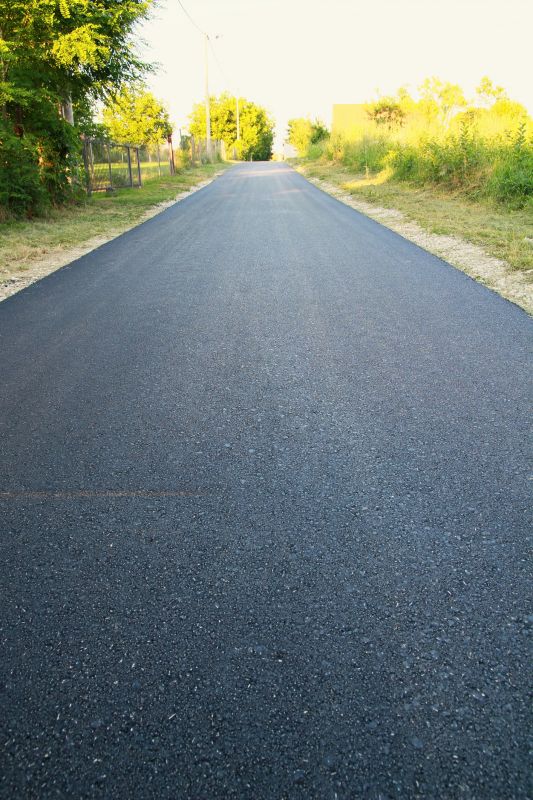Favorite Outdoor Surface Sealings for Reliable Weather Resistance
Choose from popular sealants that deliver excellent resistance to rain, sun, and temperature fluctuations.
 Outdoor surface sealing products are essential for maintaining and protecting various exterior surfaces from the elements, moisture, and wear. These sealants are designed to create a barrier that helps prevent water infiltration, reduce surface degradation, and extend the lifespan of materials such as concrete, wood, stone, and asphalt. Proper sealing not only preserves the appearance of outdoor surfaces but also enhances their durability against weather-related damage.
Outdoor surface sealing products are essential for maintaining and protecting various exterior surfaces from the elements, moisture, and wear. These sealants are designed to create a barrier that helps prevent water infiltration, reduce surface degradation, and extend the lifespan of materials such as concrete, wood, stone, and asphalt. Proper sealing not only preserves the appearance of outdoor surfaces but also enhances their durability against weather-related damage.
Top Overall Option
Comprehensive Outdoor Surface Sealant
A versatile and durable sealant designed for a wide range of outdoor surfaces, this product offers deep penetration, excellent adhesion, and weather resistance. It is suitable for concrete, wood, stone, and asphalt, providing a protective barrier that helps preserve the surface’s integrity and appearance. Easy to apply and long-lasting, it is a reliable choice for various sealing projects.
Types of Products For Outdoor Surface Sealings
Acrylic Sealers
Water-based sealants suitable for concrete and masonry, offering clarity and UV resistance.
Polyurethane Sealers
Highly durable sealants ideal for driveways and high-traffic surfaces, providing excellent abrasion resistance.
Penetrating Sealers
Silane or siloxane-based products that seep into porous surfaces to block water infiltration without changing appearance.
Epoxy Sealers
Resin-based sealants used for concrete floors and patios, offering strong adhesion and chemical resistance.
Oil-Based Sealers
Traditional sealers that penetrate wood and concrete, enhancing water resistance and surface durability.
Acrylic-Latex Sealers
Flexible sealants suitable for wood decks and outdoor furniture, providing a protective coating that resists cracking.
Asphalt Sealers
Specifically formulated for asphalt surfaces, helping to restore and protect driveways and parking lots.
Silicone Sealers
Water-repellent products ideal for sealing joints and cracks in outdoor surfaces like masonry and concrete.
Bituminous Sealers
Heavy-duty sealants for asphalt and roofing applications, offering water resistance and surface protection.
Polyurea Sealers
Fast-curing sealants used for concrete and other surfaces requiring quick application and high durability.
Clear Sealers
Transparent coatings designed to preserve the natural look of surfaces while providing protection.
Colored Sealers
Sealants with added pigments to enhance the appearance of concrete and stone surfaces.
Popular Choices
Commonly used for patios and driveways, offering ease of application and good UV resistance.
Popular for high-traffic areas, providing a tough, protective finish on concrete and asphalt.
Frequently selected for stone and brick surfaces to prevent water ingress without altering appearance.
Often used in garages and outdoor workshops for their chemical resistance and durability.
Preferred for decks and outdoor furniture to enhance water resistance and longevity.
Chosen for their flexibility and ease of reapplication on wooden surfaces.
Commonly used for driveway maintenance, offering a protective layer against weathering.
Popular for sealing joints and cracks in masonry and concrete surfaces.
Favored for their heavy-duty protection on asphalt surfaces, especially in parking lots.
Valued for quick curing and high durability in industrial and outdoor applications.
Selected for preserving the natural look of stone, concrete, and brick surfaces.
Popular for decorative concrete, providing color and protection simultaneously.
Choosing the right sealing product depends on the specific surface material, exposure conditions, and desired finish. Some sealants are formulated for porous surfaces like concrete and stone, providing deep penetration and long-lasting protection. Others are suited for wood surfaces, offering flexibility and resistance to cracking or peeling. Additionally, there are specialized sealers for asphalt driveways, patios, decks, and outdoor furniture, each designed to address unique surface needs.
Application methods vary, with many sealants available as liquids, sprays, or brush-on formulations. Surface preparation is critical for optimal results, often requiring cleaning and drying before application. Regular maintenance and reapplication are recommended to ensure continued protection, especially in high-traffic or frequently exposed outdoor areas. Selecting a product with suitable adhesion, weather resistance, and ease of use can significantly impact the effectiveness and longevity of the seal.
Investing in quality outdoor surface sealants can help safeguard outdoor investments, reduce maintenance costs, and keep surfaces looking their best over time. Whether sealing a new project or maintaining existing surfaces, understanding the different types of products available and their specific applications is key to making an informed choice that meets your outdoor sealing needs.
Key Buying Considerations
- Surface material compatibility: Ensure the sealer is suitable for concrete, wood, stone, or asphalt.
- Weather resistance: Choose products that withstand rain, UV exposure, and temperature fluctuations.
- Application method: Consider whether a liquid, spray, or brush-on application suits your project.
- Finish type: Decide between matte, satin, or glossy finishes based on aesthetic preferences.
- Penetration depth: For porous surfaces, select penetrating sealers for effective water resistance.
- Durability and longevity: Look for products with proven resistance to wear and environmental factors.
- Ease of reapplication: Some sealers are easier to reapply without extensive surface prep.
- Curing time: Check how long the product takes to fully cure before use or exposure to elements.
- Maintenance requirements: Consider how often reapplication or touch-ups might be needed.
- Compatibility with existing coatings: Ensure the new sealer adheres well to previous treatments if applicable.
- Environmental conditions: Account for the specific climate and exposure levels of your outdoor space.
- Cost and coverage: Evaluate the cost per application area to determine value.
- Safety and handling: Review safety instructions for application and ventilation needs.
- Aesthetic impact: Decide if the product enhances or preserves the natural look of your surface.
